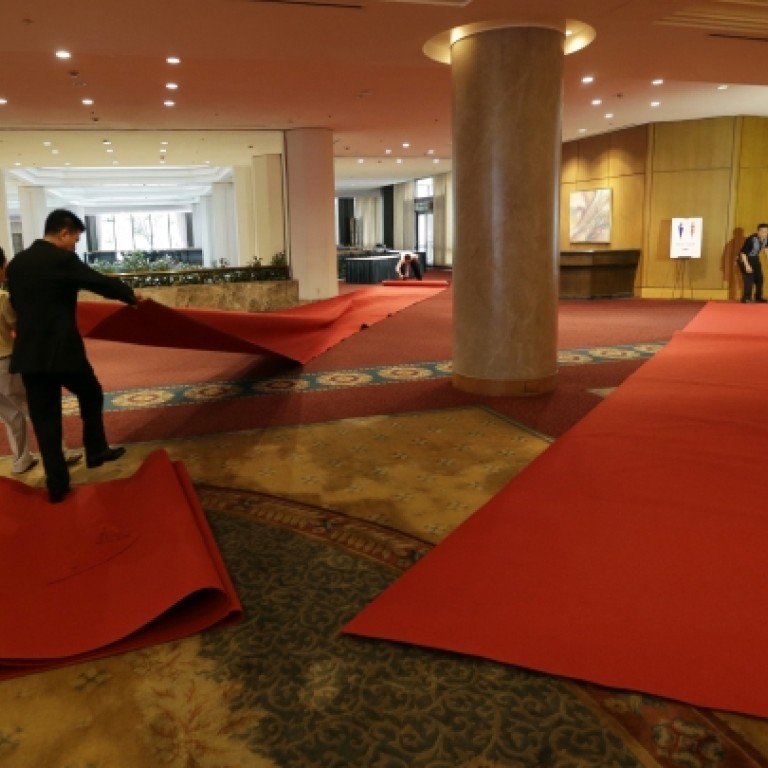
Cancellation of Korea talks highlights challenges of trust-building
Talks would have been first high-level dialogue for six years
The abrupt cancellation of planned talks between North and South Korea underlines the huge challenges facing any “trust-building” process on the divided peninsula, 60 years after the Korean War.
Right from the outset, the agreement to hold what would have been the first high-level dialogue for six years had looked vulnerable - dogged by disagreement over the agenda and other issues.
In the end, it was a matter of protocol - the North felt insulted by the South’s nomination of a vice minister as its chief delegate - that smothered the initiative before it had even drawn breath.
While little was expected of the talks, they had been seen as a positive step forward, given that the two Koreas had spent most of March and April on full military alert, trading threats of nuclear war and counter-strikes.
As of Wednesday morning, however, the North wouldn’t even deign to pick up when the South called on a newly-restored inter-government hotline.
“We made an opening call at 9 am, but the North did not answer,” the South’s Unification Ministry said.
From an outside perspective, the North’s behaviour may seem gratuitously churlish, but some analysts say it reflects a deep-rooted insecurity that balks at offering the merest hint of a concession.
“The weaker North Korea is, the more afraid it is to be seen as weak,” said Andrei Lankov, a North Korea expert and professor at Kookmin University in Seoul.
“This makes it ultra-sensitive to issues of ritual and protocol, especially when dealing with the wealthier South,” Lankov said.
The talks were to have focused on re-opening two suspended commercial projects - the Kaesong joint industrial zone and South Korea tours to the North’s Mount Kumgang resort.
“These were important hard currency earners for Pyongyang and they wanted them back up and running,” said Lankov.
“But however badly it needs the cash, the North leadership will never allow itself to be seen as making a political concession - even one that seems trivial,” he added.
There had been significant scepticism about Pyongyang’s real intentions when it came up with its dialogue offer last week.
The proposal seemed to follow the traditional North Korean playbook - manufacture a crisis, ratchet up tensions to dangerous levels and then offer talks to extract concessions.
But it’s a worn strategy that ignored a growing international consensus, which has critically won the limited support of the North’s main ally China, to stop pandering to Pyongyang.
Recent US-South Korea and US-China summits, and an upcoming China-South Korea summit have fuelled the impression of a united front forming against an increasingly isolated North Korea.
“With all this summitry going on, I think North Korea was looking to relieve the pressure a bit by demonstrating some willingness to talk,” said Hahm Chaibong, president of the Asan Institute for Policy Studies in Seoul.
“It could see the international opinion building up against it, and wanted to buy some time,” Hahm told AFP.
“I was a little surprised by the abrupt cancellation, because I thought they might drag it out a little longer, but then the North doesn’t really do compromise,” he added.
South Korean President Park Geun-Hye, who took office in February with a promise of greater engagement in Pyongyang, has since pushed a “trust-building” policy aimed at incremental improvements in relations.
As such, she had welcomed the prospect of talks as a useful first step, but the resulting stalemate over the status of the chief delegates demonstrated that Seoul was also wary of early concessions.
The two Koreas have technically remained at war for the past six decades because the 1950-53 Korean War concluded with an armistice, which will enter its 60th year next month, rather than a peace treaty.
Lee Jung-Hoon, director of the Centre for American Studies at Seoul’s Yonsei University, said the North’s proposal had largely been a “masquerade” from the outset.
“The basic idea was to break the momentum created by the summits going on around them, and try and make people believe the North might be changing its ways,” Lee said.
“I don’t think anyone was really going to buy that,” he added.
